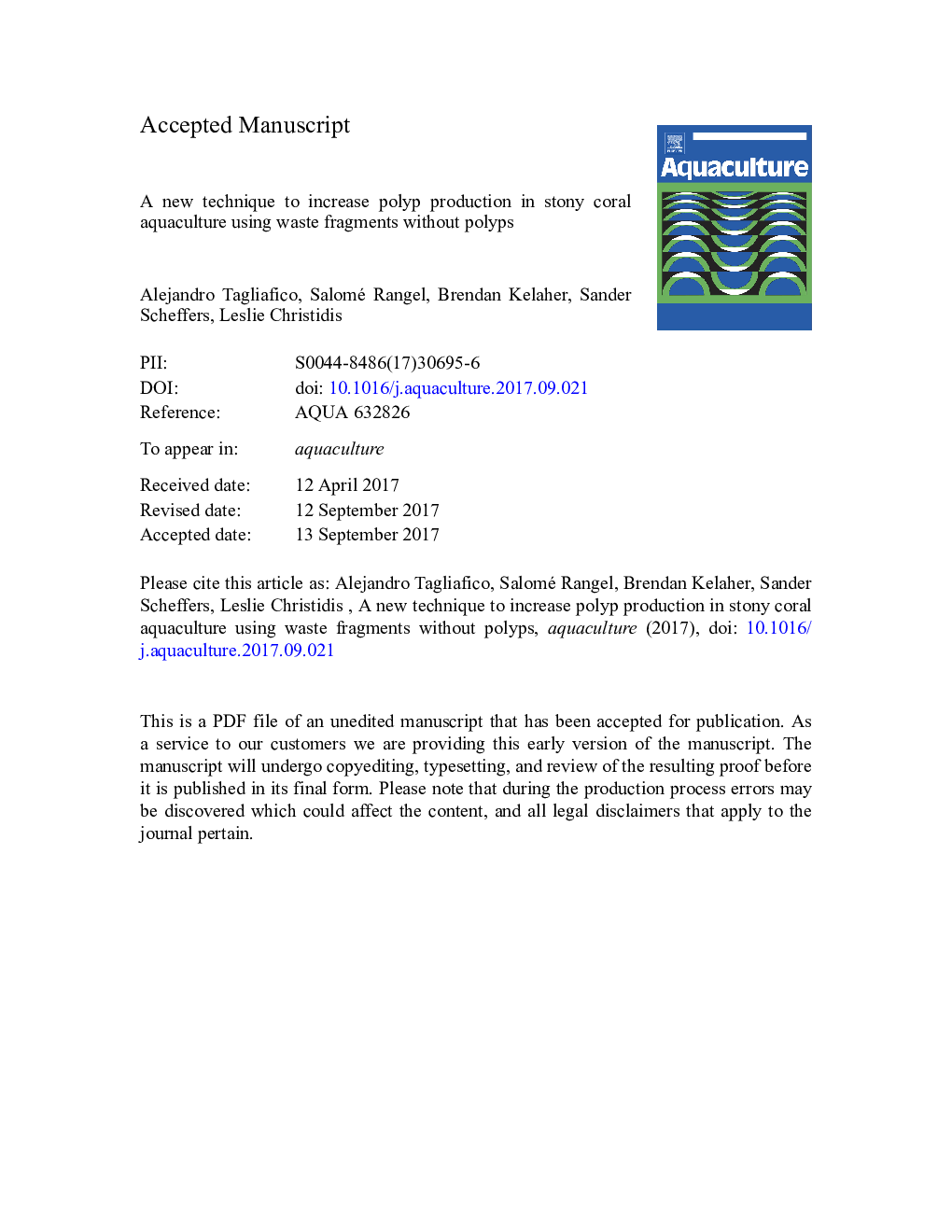| کد مقاله | کد نشریه | سال انتشار | مقاله انگلیسی | نسخه تمام متن |
|---|---|---|---|---|
| 8493584 | 1552804 | 2018 | 26 صفحه PDF | دانلود رایگان |
عنوان انگلیسی مقاله ISI
A new technique to increase polyp production in stony coral aquaculture using waste fragments without polyps
ترجمه فارسی عنوان
یک تکنیک جدید برای افزایش تولید پولیپ در حوزه آبزی پروری سنگی با استفاده از قطعات ضایعات بدون پولیپ
دانلود مقاله + سفارش ترجمه
دانلود مقاله ISI انگلیسی
رایگان برای ایرانیان
کلمات کلیدی
موضوعات مرتبط
علوم زیستی و بیوفناوری
علوم کشاورزی و بیولوژیک
علوم آبزیان
چکیده انگلیسی
The wild harvest of corals for the aquarium trade has had negative impacts on coral reef ecosystems. Although this problem can be directly addressed by increased availability of cultured corals, improvements to current aquaculture techniques are needed to increase coral production. Here, we carried out a manipulative experiment using the large polyp reef-building scleractinian coral Duncanopsammia axifuga to test whether the presence or absence of polyps, the orientation of the fragment's trunk (upside-down or right way up), or heterotrophic diet (unfed, normal Artemia and lipid-enriched Artemia) influences polyp production, growth, survival, and overall health of the coral. There was an 85% survivorship of fragments across all experimental treatments regardless of trunk orientation. D. axifuga produced the highest number of new polyps from fragments initially fixed without polyps, with diet having no effect on polyp production. Conversely, normal and lipid-enriched Artemia diets significantly enhanced growth and polyp production in fragments that were initially fixed with one polyp. Overall, we conclude that D. axifuga is suitable for coral aquaculture purposes due to high survival rates and also because polyp production was successful from what was previously considered waste fragments (i.e. without polyps). Further work is required to determine whether these aquaculture techniques enhance polyp production in other coral species with similar morph types used in commercial aquaculture.
ناشر
Database: Elsevier - ScienceDirect (ساینس دایرکت)
Journal: Aquaculture - Volume 484, 1 February 2018, Pages 303-308
Journal: Aquaculture - Volume 484, 1 February 2018, Pages 303-308
نویسندگان
Alejandro Tagliafico, Salomé Rangel, Brendan Kelaher, Sander Scheffers, Leslie Christidis,
